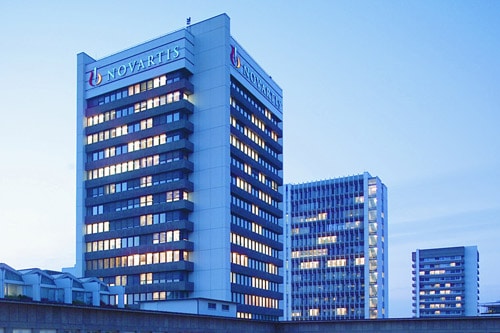
Novartis has positive phase III results in hand for its PI3K inhibitor alpelisib in advanced breast cancer patients, which it hopes will be enough to file for regulatory approvals.
The SOLAR-1 trial compared alpelisib (BYL719) plus hormonal therapy fulvestrant to fulvestrant alone as a second-line therapy for patients with hormone receptor-positive/HER2-negative breast cancer whose tumours also had PIK3CA mutations
The two regimens were compared in patients whose cancer had progressed on or following aromatase inhibitor treatment with or without a CDK4/6 inhibitor such as Pfizer’s Ibrance (palbociclib), Novartis’ own Kisqali (ribociclib) and Eli Lilly’s Verzenio (abemaciclib). Those who were treated with alpelisib had longer progression-free survival than those on fulvestrant alone.
“We…look forward to submitting the data to an upcoming medical congress and starting discussions with health authorities worldwide,” commented Samit Hirawat, Novartis’ head of oncology drug development.
At the moment no PI3K inhibitor has been approved for use in breast cancer, although Gilead Sciences’ Zydelig (idelalisib) has been used for certain types of leukaemia and lymphoma for several years and was recently joined on the market by Bayer’s Aliqopa (copanlisib), also for blood cancers. Zydelig has been affected by safety concerns, particularly the risk of severe infections, that have pegged back its sales.
Novartis has been in the forefront of the race to develop PI3K inhibitors for solid tumours, along with fellow Swiss drugmaker Roche which reported data from the SANDPIPER trial of its taselisib candidate alongside fulvestrant at this year’s American Society of Clinical Oncology (ASCO) meeting.
With nothing but the top-line message from SOLAR-1 available just yet it’s hard to gauge the prospects for alpelisib, but it is worth noting that SANDPIPER raised a lot of questions about the role of PI3K in breast cancer, particularly as taselisib’s extended PFS modestly (from 5.4 months to 7.4 months) and was associated with a serious hike in side effects.
Novartis said the adverse events observed with alpelisib in combination with fulvestrant in SOLAR-1 “were generally consistent with those observed in previous … studies” of the combination.
Hirawat said that alpelisib is the only PI3K inhibitor that acts specifically at the alpha receptor and “the first one to show potential increased benefit and acceptable tolerability for patients.”
In a statement, Novartis said that activation of the PI3K pathway in breast cancer is associated with resistance to endocrine therapy, disease progression and poorer prognosis. Approximately 40% of HR+ advanced breast cancer patients have PIK3CA mutations involving the alpha isoform.




